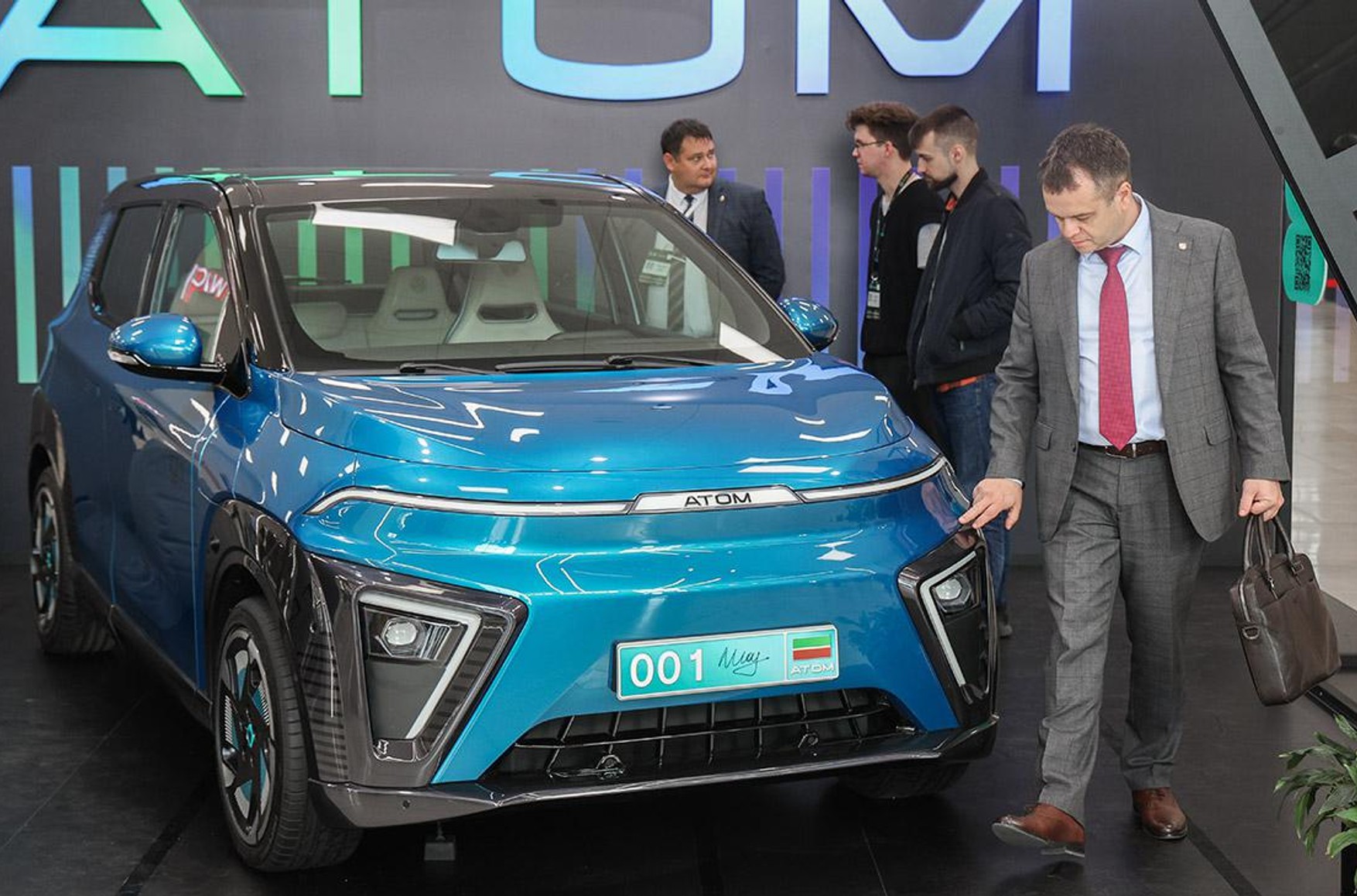The Russian automaker Kama has received 36 thousand pre-orders for the domestic Atom car, Autonews reports citing the company’s press service. The start of pre-orders for the first batch of cars was announced at the end of July. Mass production of cars is planned to begin in mid-2025. Electric cars will be assembled at the Moskvich plant.
The design of “Atom” was developed by an Italian design bureau. According to the manufacturers, the Atom will be able to accelerate to 100 km/h in 7 seconds. Approximate The car’s power reserve is 500 km. The length of the electric car will be 3995 mm, width – 1780 mm, height – 1615 mm.
Auto expert Andrey Mikryukov told The Insider that this car has good makings, but it is unknown how much this car will cost and whether this project will be successful in two or three years, when it goes on sale:
“In short, this domestic car has good makings. Its prototype was presented and declassified in May. They showed us this Atom machine, and overall it got off to a good start. There the designer was from Italy, one of the developers was from Germany. Part of the electric filling is Chinese, India helps. In general, such a hodgepodge, but this, in principle, is the right start for cars.
Whether it will be commercially successful is unknown, because as soon as it starts to be released, only then will we know the price. After all, now there is a prototype. It looks like they are going to release him on the road in August. Only in 2024, a year later, they are going to release ten prototypes, and only start sales somewhere in 2025. Whether it will be successful in two or three years, when Chinese cars and electric trains flood our country, I don’t know yet. But the makings are good.
36,000 applications is not bad for a car that hasn’t even entered mass production yet. Apparently, someone is sponsoring this project well and believes in it, perhaps. Or perhaps it’s just that some big companies like Yandex, who want to stick their hand in everywhere, are already interested, because this is truly a Russian car. It is clear that half of the spare parts and components will be made in China. But the most important thing is that the battery and cooling system are apparently being developed by our company Rostec.”
Mikryukov notes that most Russians will not be able to afford such a car, and it will most likely be in demand from car sharing companies:
“Let’s start with the fact that this car will not cost a million or a million and a half, that’s for sure. Its price will, I think, be from two million rubles. This is already the current reality. The Russians will most likely take it in units. It will be in demand only by Russian companies, which are obliged to buy Russian cars. That is, all kinds of deliveries, car sharing, some kind of Yandex… And Russians will certainly buy more proven copies of Chinese cars for this money.
In addition, Russians are still far from servicing electric cars in the regions, far from power filling stations. Now there are such gas stations in two or three large cities. So this car, of course, is for large cities.”
In general, according to the expert, Russia is now very far from a mass transition to electric vehicles:
“Of course, Russians are now very far from a mass transition to electric vehicles. As soon as you leave 100 km from any major city, firstly, you will never find an electric charger – that is, that’s it, such a car can no longer be used. Secondly, you will never find a maintenance service. And most importantly, thirdly, you will never find a Russian with two million rubles who would buy something Russian experimental that just came out. In the best case, Lada Vestas and Renaults, time-tested UAZs, will be taken.
Therefore, of course, we are still very far from electric vehicles and, in principle, I don’t see any prospects for Russians to switch to them. In large cities, like St. Petersburg, we are very close to electric vehicles. Indeed, we will buy them all, because we have gas stations and services that service this. This is developing here. But we – St. Petersburg, Moscow, Yekaterinburg of some kind – these are five cities of Russia, this is not all of Russia. Therefore, of course, there is no talk about mass participation here.”









